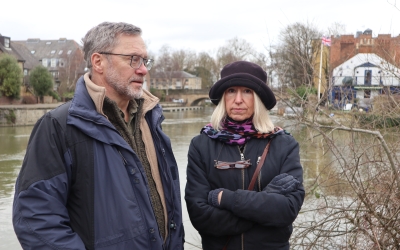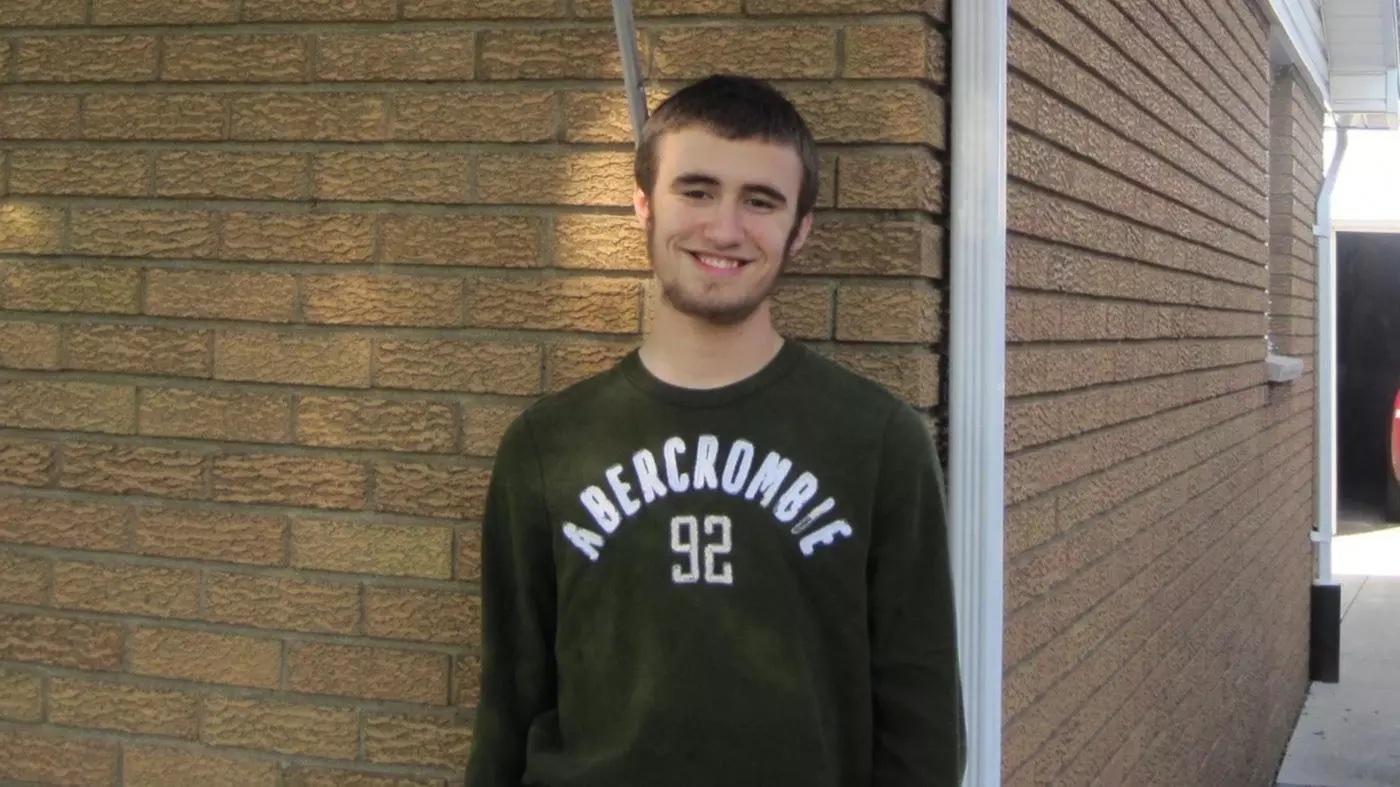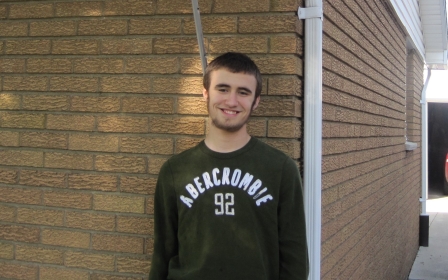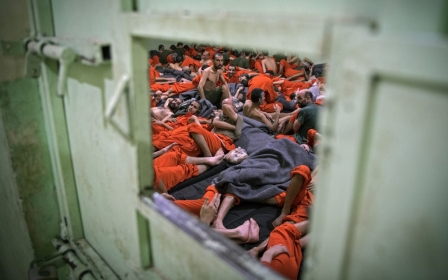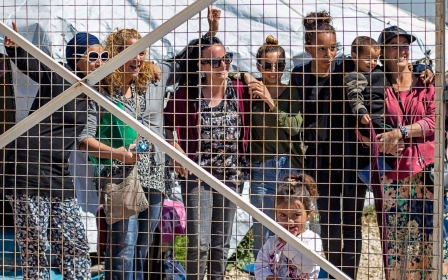Syria: Canadian delegation meets Jack Letts and other detainees held in camps
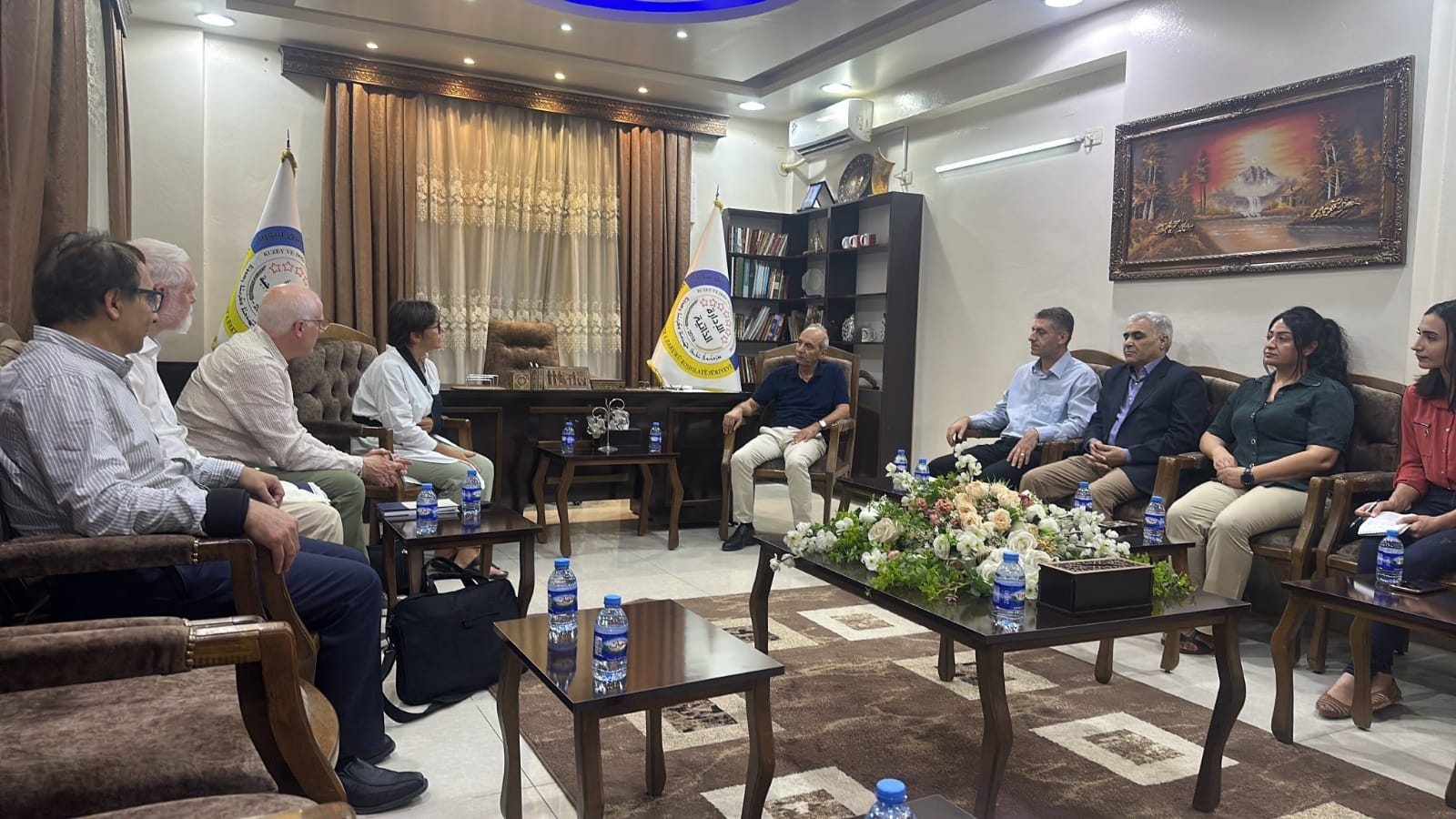
The mother of Jack Letts, a British-Canadian man detained by Kurdish authorities in northeast Syria for six years, has spoken of her “massive relief” at learning he is still alive.
Letts, who is being held among suspected Islamic State group members, was one of a number of detainees met by a Canadian civil society delegation during a five-day visit to the region earlier this month.
The delegation, which included Kim Pate, a member of the Canadian senate, is calling for the government in Ottawa to repatriate all of the country’s nationals among tens of thousands of detainees in Kurdish-controlled camps and prisons.
The delegation also called for the government to take “immediate steps” to repatriate 13 Canadian children still held in the camps and allow their non-Canadian mothers and siblings to travel with them.
Sally Lane, Jack Letts’ mother, told Middle East Eye that Kurdish officials had only been able to locate her son on the final day of their trip.
New MEE newsletter: Jerusalem Dispatch
Sign up to get the latest insights and analysis on Israel-Palestine, alongside Turkey Unpacked and other MEE newsletters
The delegation had then been able to meet him for about an hour in the presence of a prison guard.
“They said years of incarceration have obviously taken their toll. He is pale and anaemic,” said Lane. She said her son was also suffering from a longstanding untreated kidney condition.
“They were able to tell him that he hasn’t been forgotten. I am just hoping it has given him a huge boost that he is not going to be there forever.”
Letts, who is now 28, grew up in Oxford in the UK before travelling to IS-controlled Iraq and Syria aged 18 in 2014.
He was taken prisoner by Kurdish forces in 2017 and was deprived of his British citizenship, like many other British nationals who travelled to Syria, in 2019.
In the same year, Letts was visited in prison by Crispin Blunt, a British MP, during a visit to the Kurdish-controlled region by a British parliamentary delegation.
Letts’s family was last updated on his detention in September 2021, and Lane last spoke to her son in July 2018.
Lane said the delegation had not been able to visit the prison where Letts is being held, which is not being identified, and they had not been able to discuss details about conditions inside the prison.
'This delegation has achieved in five days what this government has been pretending that they haven’t been able to do in six years'
- Sally Lane, Jack Letts’ mother,
But Letts told the delegation he was being held in a cell with 14 other people, she said.
Letts had also written a two-page letter to Lane and his father, John Letts.
“I could tell from the delegation’s report back that, although Jack’s mental health has suffered greatly as a result of his six-year ordeal, it seems he has managed to survive with his personality intact,” she said.
“His letter was as affectionate and considered as ever. This is such a massive relief. He just wants to come home. He told me and John not to give up.”
Interrogated by the FBI
At a news conference at the Canadian parliament on Thursday, members of the delegation said Letts and another male Canadian prisoner they identified as Muhammad Ali had requested consular assistance and asked to be repatriated to Canada.
Both men had been interrogated multiple times by US intelligence officers or police who they believed to be from the FBI, but neither to their knowledge had been questioned by Canadian officials, they said.
According to a briefing note shared with journalists, Letts told the delegation he had “not been able to fully and truthfully provide the explanation for how and why he came to be in Northeast Syria and that comments he has made previously… have been made under duress”.
"Jack Letts was emphatic that nothing he has said in the past or in media coverage reflects his true story," said Alex Neve, a veteran human rights lawyer and activist who travelled to Syria as part of the four-person delegation.
The delegation's visit to Syria comes with the families of four Canadian men still held there, including Letts, seeking to challenge the government’s refusal to repatriate them in the country’s Supreme Court.
In May, an appeal court overturned an earlier court ruling in January which had ordered the government to repatriate the men as soon as reasonably possible.
Lane said the families of the men were waiting to hear whether their appeal to the Supreme Court would be granted and paid tribute to the delegation's efforts to raise awareness about the cases of Canadians still held in Syria.
“This delegation has achieved in five days what this government has been pretending that they haven’t been able to do in six years,” she said.
Mothers and children
In addition to Letts and one other male detainee, the delegation said it had been able to meet a Canadian woman and three non-Canadian mothers of Canadian children, all detained in al-Roj camp, during their visit.
They said they had been “warmly received” by Kurdish officials but were also “very troubled and deeply disappointed” that they had not been granted access to other prisoners they asked to see.
Neve said they believed there were at least nine Canadian men who had been held in the camps and that seeing these men had been a "top priority". But in many cases, he said, there had been no confirmation that the men were still alive in several years.
Canada is among a number of western countries that have resisted repatriating their own nationals from Syria despite being urged to do so by rights groups, local Kurdish officials and senior US officials.
'The bottom line is that they urgently need Canadian consular assistance. Our visit makes it clear that on-the- ground access and attention is possible, including in prisons'
- Scott Heatherington, former diplomat
Ottawa repatriated a number of Canadian women and children earlier this year following a legal challenge by their families.
But the government was last month accused of “unyielding cruelty” after lawyers representing women and children still held in the camps said officials had issued ultimatums to the women telling them that their children could be repatriated but that they must remain behind.
“The only acceptable and lawful path forward is for the Canadian government to take immediate steps – not within weeks or months, but within days – to ensure that all of these women, and all of their children, are able to travel safely to Canada,” said Pate.
Pate and Neve were accompanied by Scott Heatherington, a former senior diplomat, and Hadayt Nazami, an immigration and human rights lawyer.
The delegation travelled to Syria without the approval of the Canadian government despite having offered to go there on its behalf. Canada advises against all travel to Syria and has repeatedly argued it is too dangerous to send officials there to facilitate repatriations.
“It is disappointing that so many Canadians, including such a substantial number of children, have not had the consular support they require and is their right, for so many years,” said Heatherington.
"The bottom line is that they urgently need Canadian consular assistance. Our visit makes it clear that on-the-ground access and attention is possible, including in prisons. We expect to see Canadian consular officials follow suit, with no further delays.”
A Global Affairs Canada spokesperson told MEE: "Canadian consular officials remain actively engaged with Syrian Kurdish authorities, international organisations operating in the region, as well as the civil society humanitarian delegation led by Senator Pate for information on and assistance to Canadian citizens in custody."
The spokesperson said the government had a responsibility to ensure the safety of its employees including in areas with complex security situations such as northeast Syria.
"Private citizens that make the decision to travel do so making their own choice, understanding that they are subject to certain risks and the local judicial system," the spokesperson said.
"Due to privacy and operational security considerations, we cannot comment on specific cases or potential future actions."
Middle East Eye delivers independent and unrivalled coverage and analysis of the Middle East, North Africa and beyond. To learn more about republishing this content and the associated fees, please fill out this form. More about MEE can be found here.


